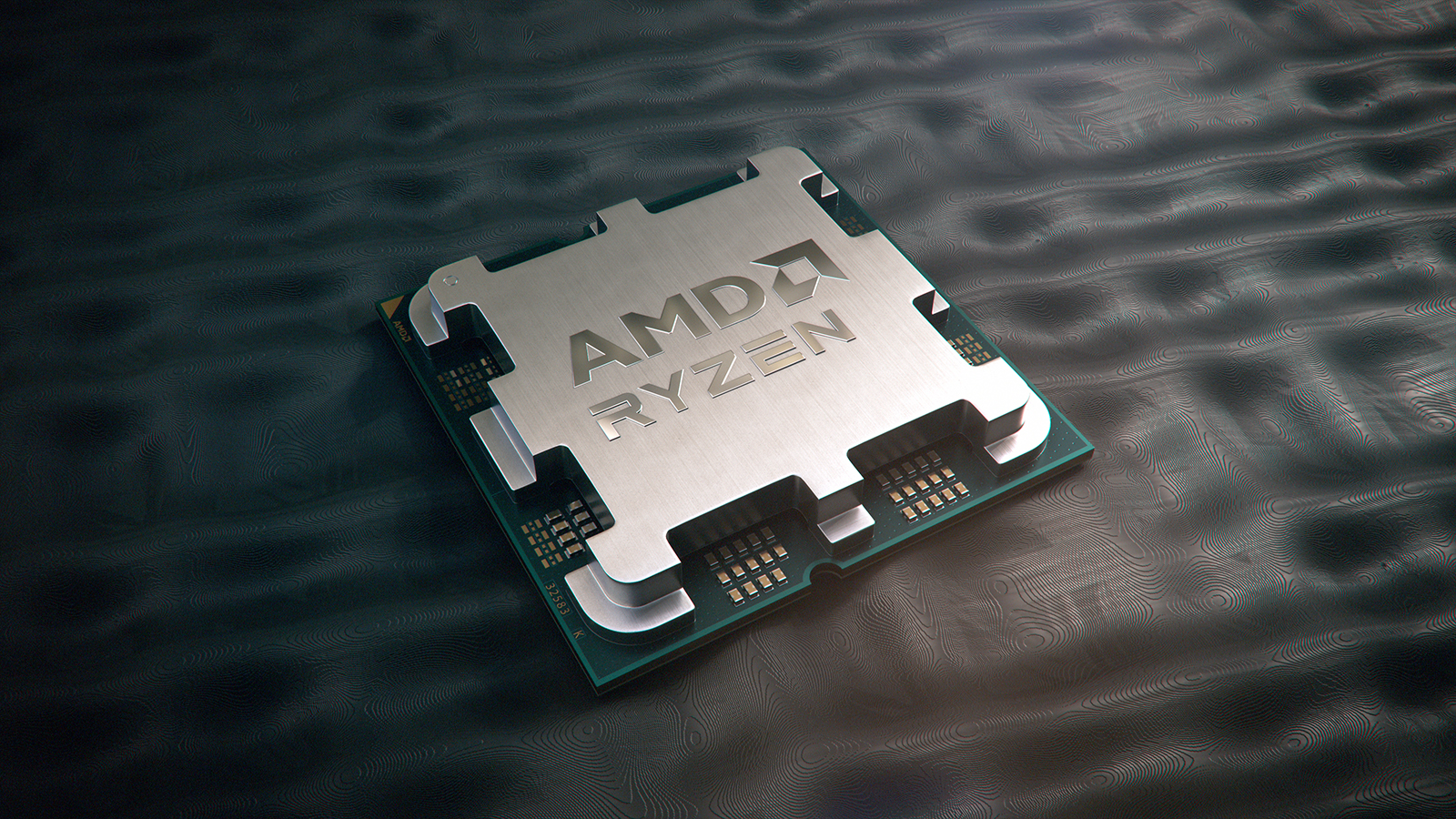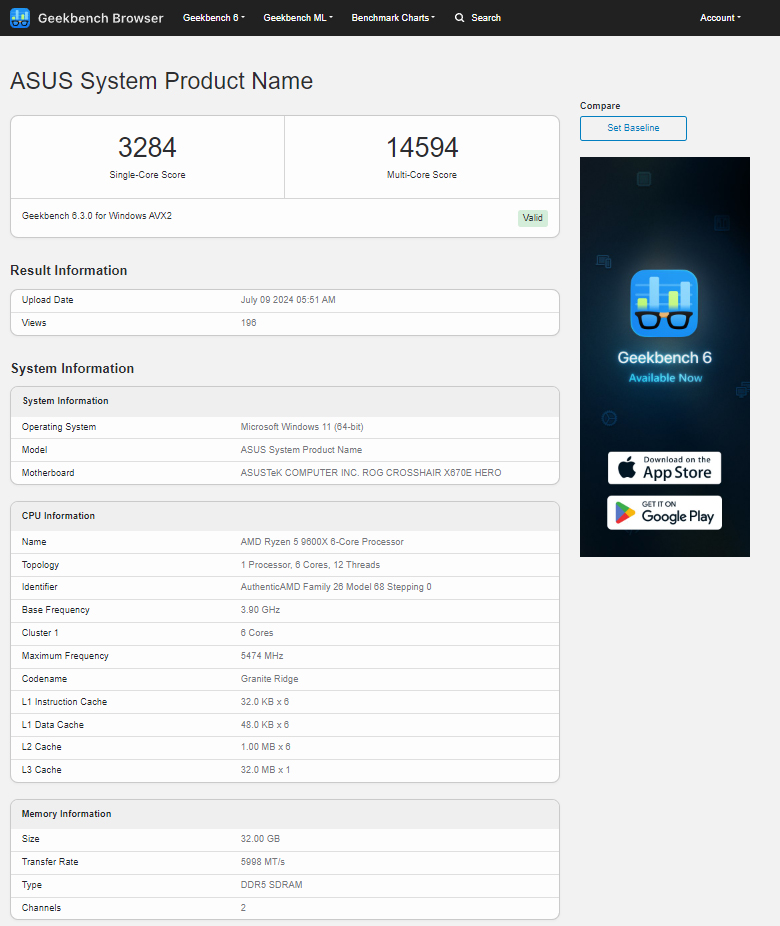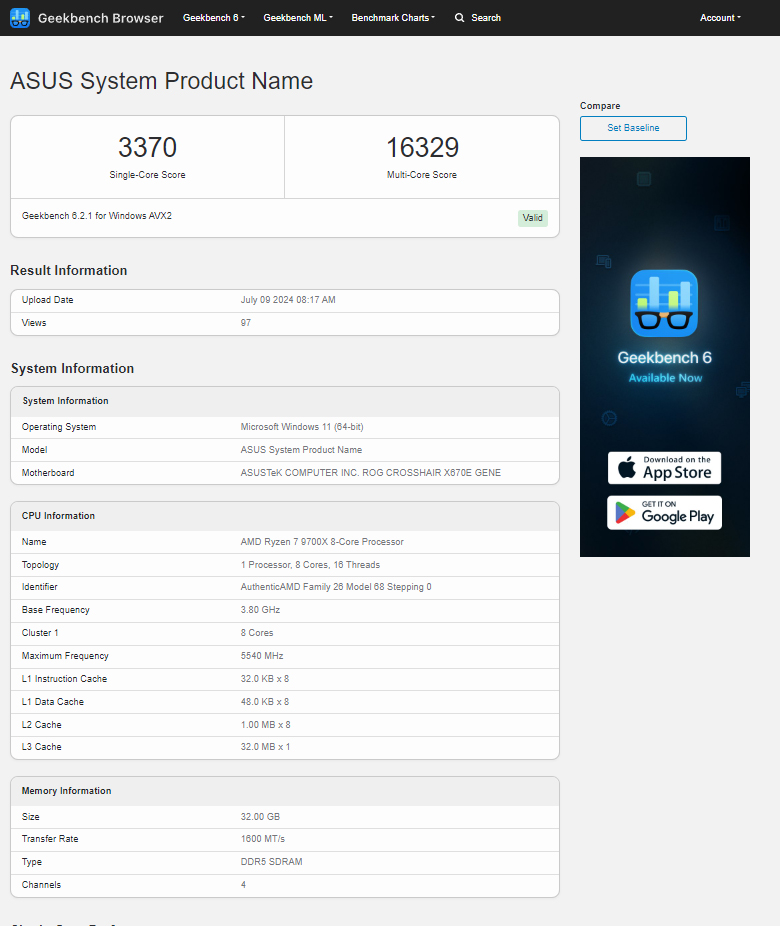
AMD's upcoming Ryzen 9000 chips aren't expected to arrive until July 31, but we're seeing some early benchmarks appear here and there. The @Benchleaks bot recently shared Ryzen 7 7900X and Ryzen 5 9600X results on X, revealing performance higher than AMD's and Intel's top previous-generation chips.
These leaked performance numbers usually come from PC manufacturers conducting final testing of their retail units before they go on sale. However, you should still take these results with a grain of salt, as these companies can change the final hardware configurations before they hit store shelves. Also, the results come from just a single test of each processor; it will take several more tests before we can see the general performance trends for AMD's latest chips.


Nevertheless, the two tests show the processors paired with 32GB RAM DDR5 RAM, with the 9700X mounted to an Asus ROG Crosshair X670E Gene and the 9600X on an X670E Hero motherboard.
Geekbench reports that the Ryzen 7 9700X has eight cores and 16 threads, a base frequency of 3.8 GHz, a max frequency of 5.54 GHz, and 32MB of L3 cache. On the other hand, the Ryzen 5 9600X has six cores and 12 threads, a 3.9 GHz base frequency, and a 5.47 GHz max frequency. It also has the same 32MB L3 Cache.
These are the Geekbench 6 results of other processors so we can see how these new processors compare:
Both Ryzen 9000-series processors outperform the previous generation AMD and Intel chips in single-core score performance despite having a lower base or boost clock, probably owing to AMD’s new Zen 5 architecture. Nevertheless, Intel’s 14th-gen chips still outperform them in the multi-core department, especially with their P-core / E-core architecture.
While the benchmarks may show the general theoretical performance of a processor, how fast your computer will be will still vary with the components you get, plus your luck with the silicon lottery. And before you make a long-term purchase of such a significant PC part, you should always wait for benchmarks that put these chips through their paces in both theoretical and real-world applications.







